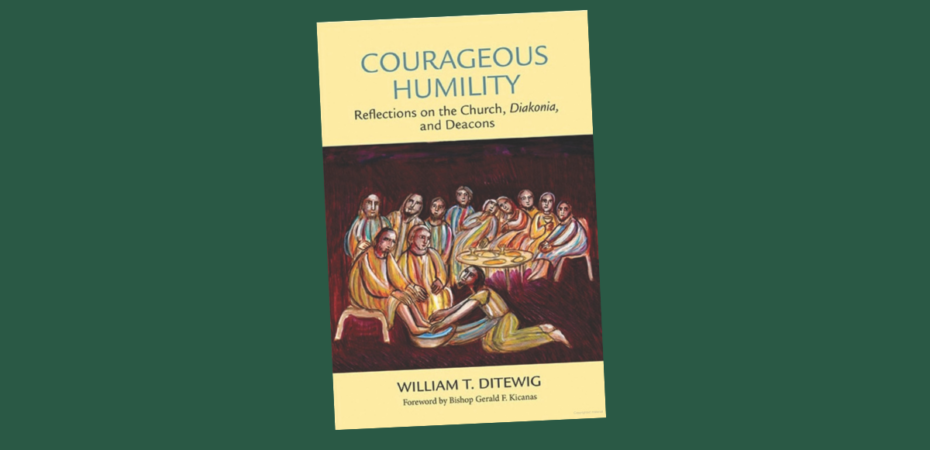A Look at ‘Courageous Humility’
A look at a diaconal Church on her knees to wash feet, to serve, to accompany, to listen
Deacon Greg Kandra Comments Off on A Look at ‘Courageous Humility’
Honestly, this isn’t what I expected.
Like most deacons, I’ve been following William Ditewig’s writings for many years — decades, really — and have been captivated and inspired by his insights and astounding depth of knowledge about all things diaconal. It’s not a stretch to call Bill Ditewig (and he’s just plain “Bill” to most of us who know him and call him a friend) the leading authority on deacons in the United States, if not the world. To borrow a description often used for experts in any field, “He’s forgotten more about the diaconate than most of us remember.”
I approached his newest work expecting more of the same: a scholarly, erudite dissection about deacons and, judging from its title, perhaps a few incisive reflections on how all this is tied to the virtue of humility.
That was what I expected.
I was wrong.
What Ditewig has given us instead is something more significant. “Courageous Humility: Reflections on the Church, Diakonia and Deacons” (Paulist, $29.95) is nothing less than Ditewig’s theological magnum opus — an expansive vision of the Catholic Church and, not insignificantly, the role of the deacon within it. As one endorser puts it, this is a work that “every Catholic who cares about the future of the Church ought to read.”
Working your way through this book — and, at 259 pages, it’s not hard work — you will encounter discussions about what a deacon is, what he does, how he fits into the larger arena of the Catholic world. Along the way, there are some surprises. Ditewig offers well-argued thoughts about how canon law should be adjusted, how the diaconal ordination rite might be revised (among other things, to include what is now missing: an anointing) and why the word “permanent” ahead of “deacon” needs to be retired.
But you will also realize that he is getting at something else here, too. Where some see a Church Triumphant or a Church Militant, Ditewig sees instead a Church humble — the Body of Christ on its knees to wash feet, to serve, to accompany, to listen. It is a Church that is, at its heart, diaconal.
The opening sentence sets the stage: “To love another person and to be loved in return is an act of humility.” He explores what that means for us as a Church, and how all the People of God live out that humility. “The bottom line,” he writes, “is that the Church is humble because our God is humble.” And he quotes theologian Richard Gaillardetz, who observed, “Once you’ve begun to imagine a church that makes mistakes, you have the beginning of a humble church.”
There is a lot here to unpack — about ministry, about ecclesiology, about service and more. The diaconate, as Ditewig reminds us, traces its roots back to the Last Supper and Christ washing the feet of his apostles. Deacons were instituted on the same night as the priesthood and the Eucharist; the vocation is tightly woven into the fabric of Christ’s own passion. Deacons, we are reminded, are not an afterthought or a modern novelty. They were there at the very beginning. Attention must be paid.
At bottom, “Courageous Humility” is a call to action for every one of us — a challenge to rise to the moment by sinking to our knees, to stand before our God by bowing to one another, to preach the Gospel by learning to listen, to lead by walking alongside those in need.
The fact that Bill Ditewig has written about this so compellingly is a cause for celebration — and, above all, gratitude.
DEACON GREG KANDRA is the creator of “The Deacon’s Bench” blog and the author of “Befriending St. Joseph” (Ave Maria Press, $13.95).





